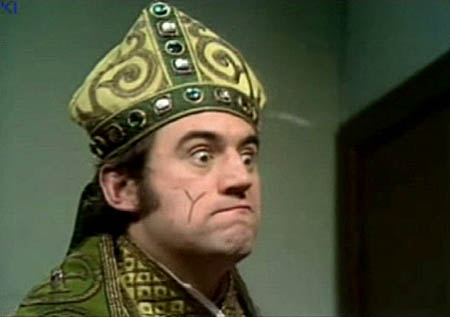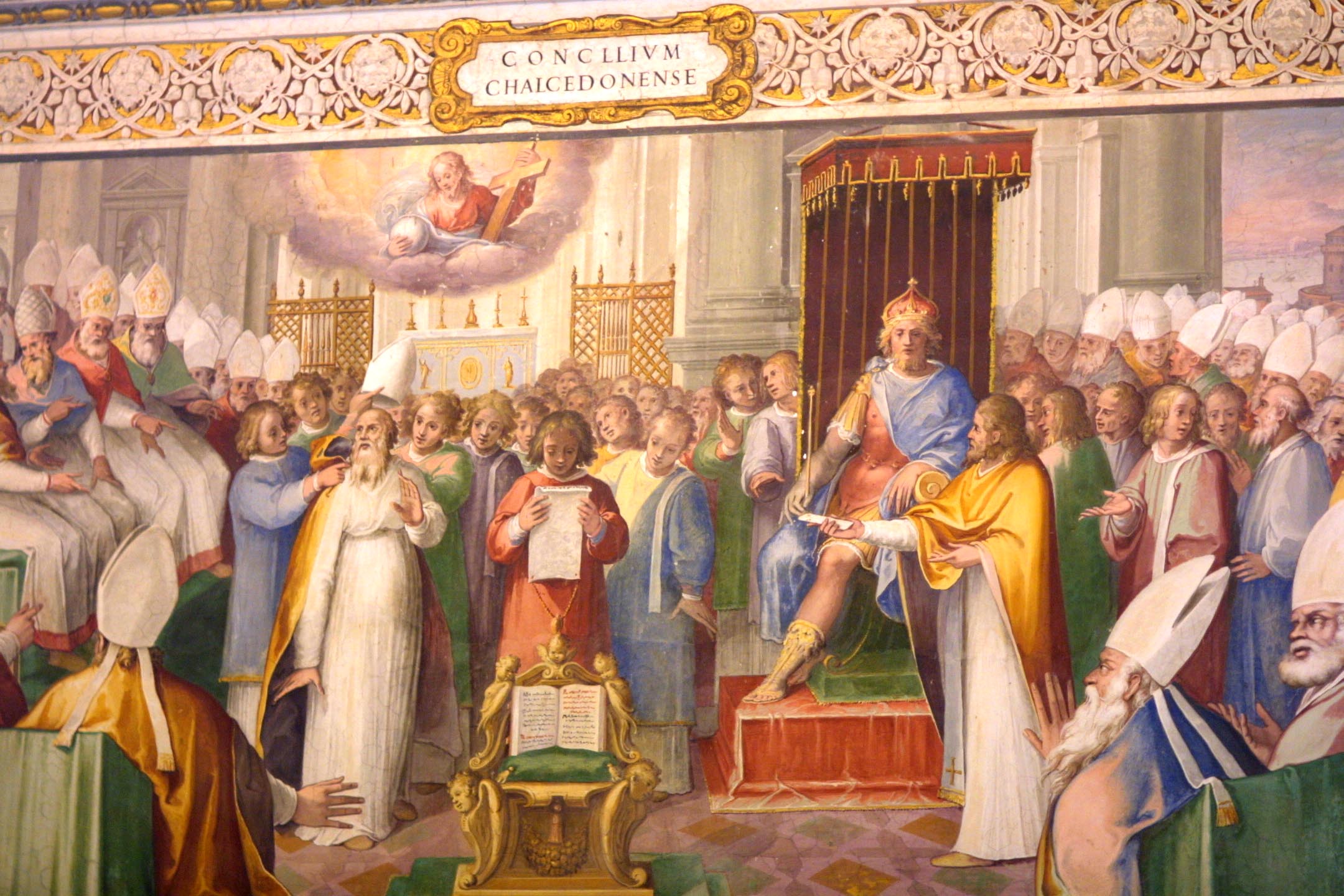
A footnote in Christianity: The First Three Thousand Years by Diarmaid MacCulluch, led me to interlibrary-loan Byzantine Orthodoxies edited by Andrew Louth. MacCulloch had cited an article in it, “Byzantine Hymns of Hate” by Archimandrite Ephrem (Lash). He also suggested that it was a witty treatment of its subject. This intrigued me enough to see if could I get hold of a copy.
The book in which I found it is a collection of papers given 36th Spring Symposium of Byzantine Studies at the University of Durham in 2002. The title of this symposium was “Was Byzantium Orthodox?” The collection of papers bears a less confusing title.

The author of the article is indeed witty. He first asks the non-Eastern Orthodox reader to imagine hymns which named off other Christians by name whose beliefs contradicted one’s own. He even writes a stanza.
Let Luther, Calvin, Zwingli too
Be cast out from the Church with shame
With Cranmer and his godless crew,
Who marred Christ’s glorious, holy name.
I wonder what the august rulers of Calvin College (from whom I interlibrary-loaned the book) would think of Archimandrite Ephrem (Lash)’s hymn which he suggests is “to be sung to Talli’s’s Canon.”

There are four feasts in the Byzantine Church year that celebrate Councils of the Church (as the gatherings which hammered out what constituted heresy and orthodoxy at the time are called). This blows me away. We are talking a historical period of 325 to 797 CE. East and West in the Christian church hadn’t split yet so these are events are shared by present day Western Christianity’s history. One of the feasts is the Feast of the Fathers of the Fourth Council. It commemorate the Council of Chalcedon (451).

Here is a text that is routinely sung on this day:
The fourth Council in Chalcedon overthrew the dread Dioskoros, Eftyches and Severos, finally thrusting outof the Church of Christ the Master their thorny error that confounds the natures of the Savior. Holding to right belief with it, let us then hate them.

It is this last sung prayer that Arichimedes Ephrem (Lash) says “justifies what may appear as the somewhat extravagant title of this paper.”
I am interested in this history of struggle because a lot of it was about images. There were other controversies, but maybe none so far reaching in impact.
You had basically two lines of thought: images were forbidden by the commandment about forbidding making “graven images” or that images specifically icons were holy in and them selves as a conduit between the worshiper and God.
Guess which one won.
![]()
Today I believe we are in a similar struggle: image is growing in influence, words have less impact. While I strongly love the idea of image, especially in art and nature, I find myself wondering whether written words will continue to have the impact they have had on my life and thinking after I’m no longer on the scene.

Of course, one could easily over estimate how much impact words have had in the past. Literacy is a relative concept I guess. It might be literacy that interests me whether connected to words or images.
I often remember an elementary teacher telling me that saying “words cannot describe” something is a false statement. There are words enough to describe everything – it is our job to learn all the words. To this day, I will say “my vocabulary isn’t sufficient to describe”. Funny how certain things make an impact and stick with me.
I can remember some of my elementary school teachers vividly as well. And in many instances what they taught me still informs the ways I see things. Thanks for reading.